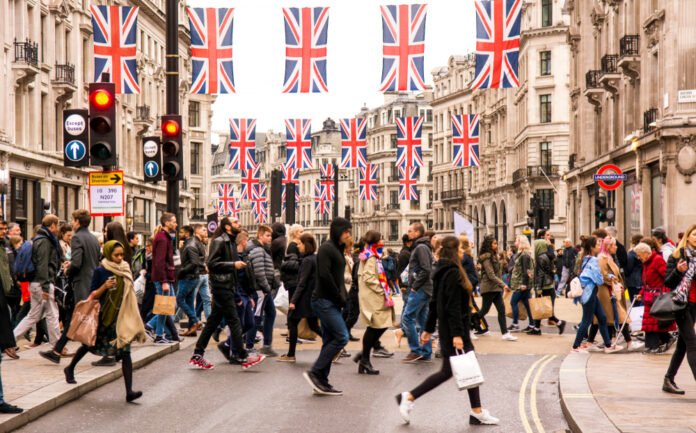In the aftermath of Brexit, the UK’s decision to abolish the ‘Tourist Tax’ incentive has led to a significant shift in tourist spending habits. Formerly, thousands of tourists flocked to Britain for tax-free shopping, but with the removal of this incentive, visitors are now turning their attention to other European destinations renowned for their shopping experiences.
Paris, Milan, and Madrid have emerged as top contenders for tax-free shopping, attracting tourists seeking savings on luxury goods and designer items. The absence of VAT refunds in the UK has prompted travelers to explore alternative destinations where they can enjoy tax-free shopping and maximize their purchasing power.
This trend is particularly pronounced among tourists from non-EU countries who were accustomed to VAT refunds on their purchases in the UK. With the elimination of this benefit, these visitors are now redirecting their spending towards cities like Paris, Milan, and Madrid, where VAT refund schemes remain intact.
The allure of iconic fashion capitals like Paris and Milan, renowned for their high-end boutiques and luxury brands, has only grown stronger in the absence of tax burdens. Tourists are drawn to the opportunity to indulge in guilt-free shopping sprees, knowing that they can enjoy significant savings on their purchases.
Madrid, with its vibrant street shopping scene and bustling markets, offers a diverse range of shopping experiences catering to different tastes and budgets. From designer boutiques along Gran Via to traditional Spanish markets like El Rastro, the Spanish capital provides ample opportunities for tax-free shopping enthusiasts to explore and discover unique finds.
The impact of the UK’s decision to scrap the ‘Tourist Tax’ incentive extends beyond individual shopping preferences to broader economic implications. Retailers in Paris, Milan, and Madrid are witnessing an influx of international shoppers, boosting local economies and revitalizing the retail sector.
However, concerns have been raised about the potential long-term consequences of the UK’s policy change on its tourism industry. The loss of tax-free shopping as a draw for international visitors could have a detrimental effect on the UK’s competitiveness as a tourist destination, posing challenges for retailers and businesses reliant on tourism revenue.
As the shift in tourist spending patterns reverberates across Europe, retailers in Paris, Milan, and Madrid are capitalizing on the influx of international shoppers. Luxury brands and department stores are ramping up their marketing efforts to attract tourists, offering special promotions, exclusive discounts, and personalized shopping experiences to entice visitors.
In Paris, renowned for its haute couture and iconic fashion houses, luxury boutiques along the Champs-Élysées and the chic streets of Le Marais are witnessing a surge in foot traffic. The city’s status as a global fashion capital, coupled with its rich cultural heritage and architectural marvels, makes it an irresistible destination for fashion enthusiasts seeking a blend of luxury shopping and cultural exploration.
Similarly, Milan, often regarded as the fashion capital of Italy, is experiencing a resurgence in tourist arrivals, driven by the allure of its world-class shopping districts such as Via Montenapoleone and the Quadrilatero della Moda. Visitors are drawn to the city’s reputation for cutting-edge design, exquisite craftsmanship, and unparalleled shopping experiences, making Milan a must-visit destination for fashion-forward travelers.
Meanwhile, in Madrid, the vibrant energy of the city’s streets and the eclectic mix of shops and markets are captivating tourists seeking a more diverse and immersive shopping experience. From high-end fashion boutiques in the upscale neighborhood of Salamanca to bustling flea markets like El Rastro, Madrid offers something for every shopper, regardless of budget or style preference.
While the surge in tourist spending is a boon for retailers in Paris, Milan, and Madrid, it also presents challenges and opportunities for local businesses and communities. The influx of international visitors brings economic benefits, including increased revenue for retailers, job creation, and investment in infrastructure. However, it also raises concerns about overtourism, environmental sustainability, and the preservation of local culture and heritage.
To mitigate the negative impacts of overtourism, cities like Paris, Milan, and Madrid are implementing measures to promote sustainable tourism practices, encourage responsible behavior among visitors, and preserve the unique character of their neighborhoods and landmarks. Initiatives such as pedestrian-friendly zones, cultural heritage preservation projects, and eco-friendly transportation options are being introduced to strike a balance between tourism growth and environmental conservation.
The abolition of the ‘Tourist Tax’ in the UK has reshaped the dynamics of tax-free shopping in Europe, leading to a surge in tourist spending in cities like Paris, Milan, and Madrid. As retailers and businesses adapt to meet the demands of an increasingly globalized marketplace, the impact of Brexit on consumer behavior and tourism trends continues to unfold, shaping the future of Europe’s retail landscape.

